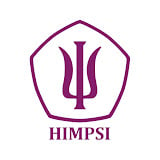Resilience, Gender, Self-efficacy, and Emotion Maturity among Gen Z: Correlation Model and Mapping
Abstract
Resilience, the capacity to adapt and recover from adversity, is increasingly relevant for understanding Generation Z, often described as the “strawberry generation” for their perceived fragility. Empirical evidence on the determinants of resilience in this cohort, however, remains limited. This study examined the influence of gender, self-efficacy, and emotional maturity on resilience among Indonesian Gen Z. A cross-sectional survey was conducted with purposive sampling of 580 respondents from Java Island. Correlation analysis revealed significant associations between resilience and gender, self-efficacy, and emotional maturity. Further regression analysis indicated that only self-efficacy and emotional maturity significantly predicted resilience, while gender did not. Geospatial mapping showed regional variation, with East Java reporting the highest resilience scores and Central Java the lowest. The findings underscore the importance of self-efficacy and emotional maturity in fostering resilience, whereas gender differences appear negligible. The study is limited by its reliance on standardized group categorization of resilience. Future research should refine measurement approaches and investigate regional variations in self-efficacy and emotional maturity to provide a more nuanced understanding of Gen Z’s adaptive capacity.
Keywords
Full Text:
PDFReferences
Abdolrezapour, P., Ganjeh, S. J., & Ghanbari, N. (2023). Self-efficacy and resilience as predictors of students’ academic motivation in online education. PLoS ONE, 18(5), 1–12. https://doi.org/10.1371/journal.pone.0285984
Arasteh, M., & Seyedoshohadaei, S. A. (2018). The Relationship between Emotional Intelligence and Emotional Maturity among Students of Kurdistan University of Medical Sciences. Journal of Ecophysiology and Occupational Health, 18(1 & 2), 31–37. https://doi.org/10.18311/jeoh/2018/21377
Bano, Z., & Pervaiz, S. (2020). Emotional Intelligence And Their Influence Pak Armed Forces Med. Pak Armed Forces Med J, 70(2), 390–394.
Belcher, B. R., Zink, J., Azad, A., Campbell, C. E., Chakravartti, S. P., & Herting, M. M. (2021). The Roles of Physical Activity, Exercise, and Fitness in Promoting Resilience During Adolescence: Effects on Mental Well-Being and Brain Development. Biological Psychiatry: Cognitive Neuroscience and Neuroimaging, 6(2), 225–237. https://doi.org/10.1016/j.bpsc.2020.08.005
Bottolfs, M., Støa, E. M., Reinboth, M. S., Svendsen, M. V., Schmidt, S. K., Oellingrath, I. M., & Bratland-Sanda, S. (2020). Resilience and lifestyle-related factors as predictors for health-related quality of life among early adolescents: a cross-sectional study. Journal of International Medical Research, 48(2). https://doi.org/10.1177/0300060520903656
Fernandes, G., Amaral, A., & Varajão, J. (2018). Wagnild and Youngs’s resilience scale validation for IS students. Procedia Computer Science, 138, 815–822. https://doi.org/10.1016/j.procs.2018.10.106
Galatzer-Levy, I. R., Huang, S. H., & Bonanno, G. A. (2018). Trajectories of resilience and dysfunction following potential trauma: A review and statistical evaluation. Clinical Psychology Review, 63, 41–55. https://doi.org/10.1016/j.cpr.2018.05.008
Garagiola, E. R., Lam, Q., Wachsmuth, L. S., Tan, T. Y., Ghali, S., Asafo, S., & Swarna, M. (2022). Adolescent Resilience during the COVID-19 Pandemic: A Review of the Impact of the Pandemic on Developmental Milestones. Behavioral Sciences, 12(7), 1–24. https://doi.org/10.3390/bs12070220
Hendriani, W., & Mulawarman, M. (2020). The alignment of solution-focused brief counseling in helping to achieve resilience: a comparative analysis. Islamic Guidance and Counseling Journal, 3(2), 100–107. https://doi.org/10.25217/igcj.v3i2.860
Hernandez-de-Menendez, M., Escobar Díaz, C. A., & Morales-Menendez, R. (2020). Educational experiences with Generation Z. International Journal on Interactive Design and Manufacturing, 14(3), 847–859. https://doi.org/DOI:http://doi.org/
Herrman, H., Stewart, D. E., Diaz-Granados, N., Berger Dphil, E. L., Jackson, B., & Yuen, T. (2011). What Is Resilience? Can J Psychiatry, 56(5), 258–265.
Hinduan, Z. R., Anggraeni, A., & Agia, M. I. (2020). Generation Z in Indonesia: The Self-Driven Digital. In The New Generation Z in Asia: Dynamics, Differences, Digitalization (Vol. 1, pp. 121–134). Emerald Group Publishing Ltd. https://doi.org/10.1108/978-1-80043-220-820201012
ID Research Institute. (2022). Family Life Education and Career Formal Education and Demographic Bonus.
Joy, M., & Mathew, A. (2018). Emotional Maturity and General Well-Being of Adolescents. IOSR Journal Of Pharmacy, 8(5), 2250–3013. www.iosrphr.org
LeMoult, J., Humphreys, K. L., Tracy, A., Hoffmeister, J. A., Ip, E., & Gotlib, I. H. (2020). Meta-analysis: Exposure to Early Life Stress and Risk for Depression in Childhood and Adolescence. Journal of the American Academy of Child and Adolescent Psychiatry, 59(7), 842–855. https://doi.org/10.1016/j.jaac.2019.10.011
Malhi, G. S., Das, P., Bell, E., Mattingly, G., & Mannie, Z. (2019). Modelling resilience in adolescence and adversity: a novel framework to inform research and practice. Translational Psychiatry, 9(1), 1–16. https://doi.org/10.1038/s41398-019-0651-y
Masten, A. S. (2015). Pathways to Integrated Resilience Science. Psychological Inquiry , 26(2), 187–196. http://www.jstor.org/stable/43865726
Moore, K., Jones, C., & Frazier, R. S. (2017). Engineering Education For Generation Z. American Journal of Engineering Education, 8(2), 111–126.
Ong, A. D., Bergeman, C. S., & Boker, S. M. (2009). Resilience comes of age: Defining features in later adulthood. Journal of Personality, 77(6), 1777–1804. https://doi.org/10.1111/j.1467-6494.2009.00600.x
Pratama, R. C. (2016). Hubungan antara kontrol diri dan kematangan emosi denga perilaku seksual pranikah siswa laki-laki kelas X dan XI SMK Pancasila Dander Bojonegoro. Universitas Sebelas Maret Surakarta.
Pratama, R. C. (2023). Peran Pelatihan Regulasi Emosi pada Stress Kerja: Studi Eksperimen Pada PT X. Kartasura. Jurnal Janaloka, 1(2), 44–52. https://doi.org/10.54883/janaloka.v1i2.554
Sagone, E., De Caroli, M. E., Falanga, R., & Indiana, M. L. (2020). Resilience and perceived self-efficacy in life skills from early to late adolescence. International Journal of Adolescence and Youth, 25(1), 882–890. https://doi.org/10.1080/02673843.2020.1771599
Sakdiyakorn, M., Golubovskaya, M., & Solnet, D. (2021). Understanding Generation Z through collective consciousness: Impacts for hospitality work and employment. International Journal of Hospitality Management, 94(102822), 1–13. https://doi.org/10.1016/j.ijhm.2020.102822
Santoro, G., Ferraris, A., Del Giudice, M., & Schiavone, F. (2020). Self-efficacy and Success of Disadvantaged Entrepreneurs: The Moderating Role of Resilience. European Management Review, 17(3), 719–732. https://doi.org/10.1111/emre.12394
Schroth, H. (2019). Are you ready for gen Z in the workplace? California Management Review, 61(3), 5–18. https://doi.org/10.1177/0008125619841006
Schwarzer, R., & Jerusalem, M. (1995). Generalized Self-Efficacy scale. In J. Weinman, S. Wright, & M. Johnston (Eds.), Measures in health psychology: A user’s portfolio (pp. 33–37). NFER-NELSON.
Supervía, U. P., Bordás, S. C., & Robres, Q. A. (2022). The mediating role of self-efficacy in the relationship between resilience and academic performance in adolescence. Learning and Motivation, 78(2022), 1–8. https://doi.org/10.1016/j.lmot.2022.101814
Swasti, I. K. (2024). Narrative Therapy to Treat a College Student’s Depression: A Case Report. INSAN Jurnal Psikologi Dan Kesehatan Mental, 9(1), 1–34. https://doi.org/10.20473/jpkm.v9i12024.1-34
Vella, S.-L., & Pai, N. (2019). A theoretical review of psychological resilience: Defining resilience and resilience research over the decades. Archives of Medicine and Health Sciences, 7(2), 233–239. https://doi.org/10.4103/amhs.amhs_119_19
Wald, J., Taylor, S., Asmundson, G. J. G., Jang, K. L., & Stapleton, J. (2006). Literature Review of Concepts: Psychological Resiliency. Defence R&D Canada. https://www.researchgate.net/publication/235202900
Wang, Y., & Pan, Z. (2023). Modeling the Effect of Chinese EFL Teachers’ Self-efficacy and Resilience on Their Work Engagement: A Structural Equation Modeling Analysis. SAGE Open, 13(4). https://doi.org/10.1177/21582440231214329
Zyberaj, J. (2022). Investigating the relationship between emotion regulation strategies and self-efficacy beliefs among adolescents: Implications for academic achievement. Psychology in the Schools, 59(8), 1556–1569. https://doi.org/https://doi.org/10.1002/pits.22701
DOI: http://dx.doi.org/10.22441/biopsikososial.v9i2.33851
Refbacks
- There are currently no refbacks.
Copyright (c) 2025 Biopsikososial: Jurnal Ilmiah Psikologi Fakultas Psikologi Universitas Mercubuana Jakarta
JBUMBand its articles is licensed under a Creative Commons Attribution-ShareAlike 4.0 International License.
Tim Editorial Office
JBUMB
Fakultas Psikologi, Universitas Mercu Buana
Jalan Meruya Selatan No. 1, Kembangan, Jakarta Barat, 11650, Indonesia
Phone: +6281318855243
Email: [email protected]
Website: https://publikasi.mercubuana.ac.id/index.php/biopsikososial/index

















